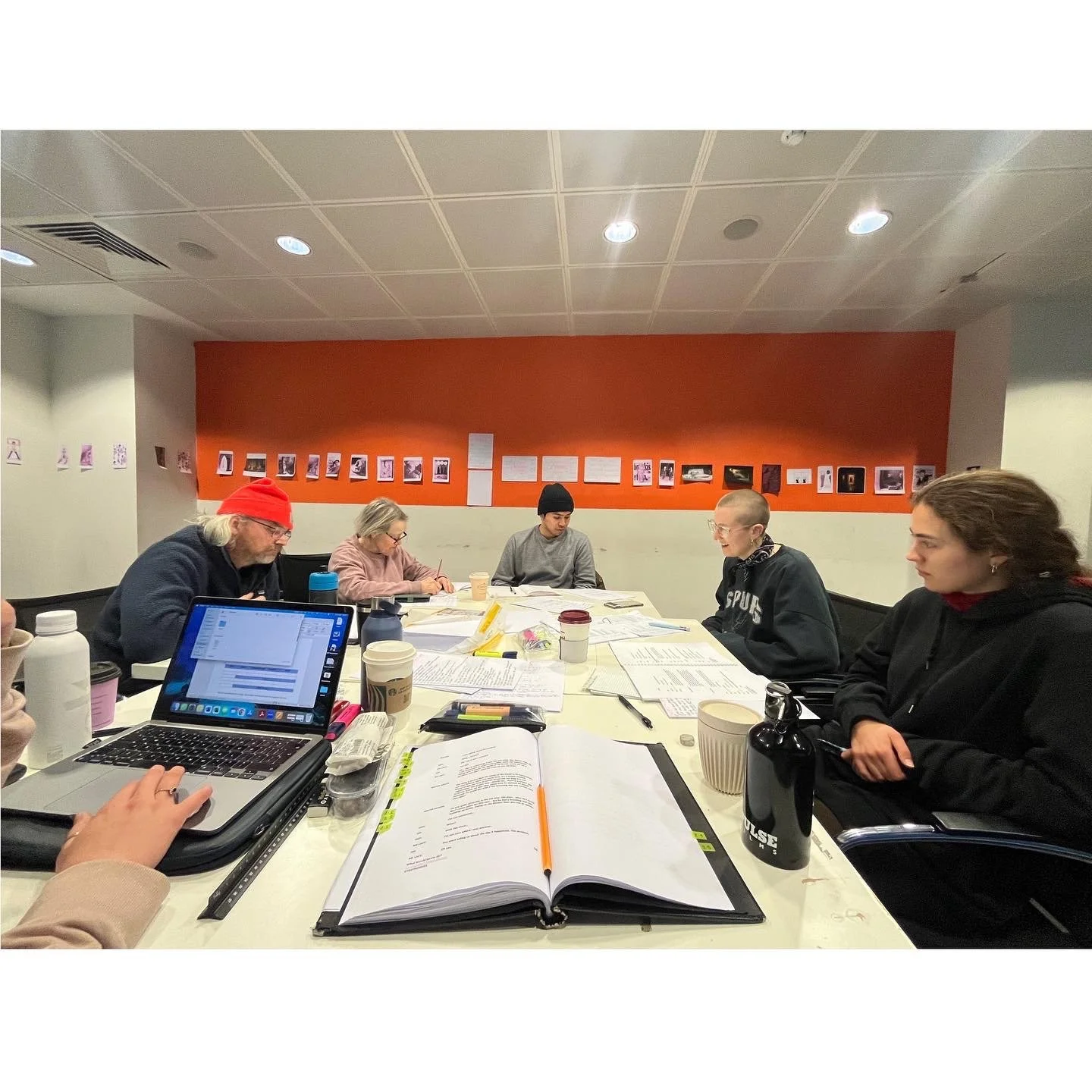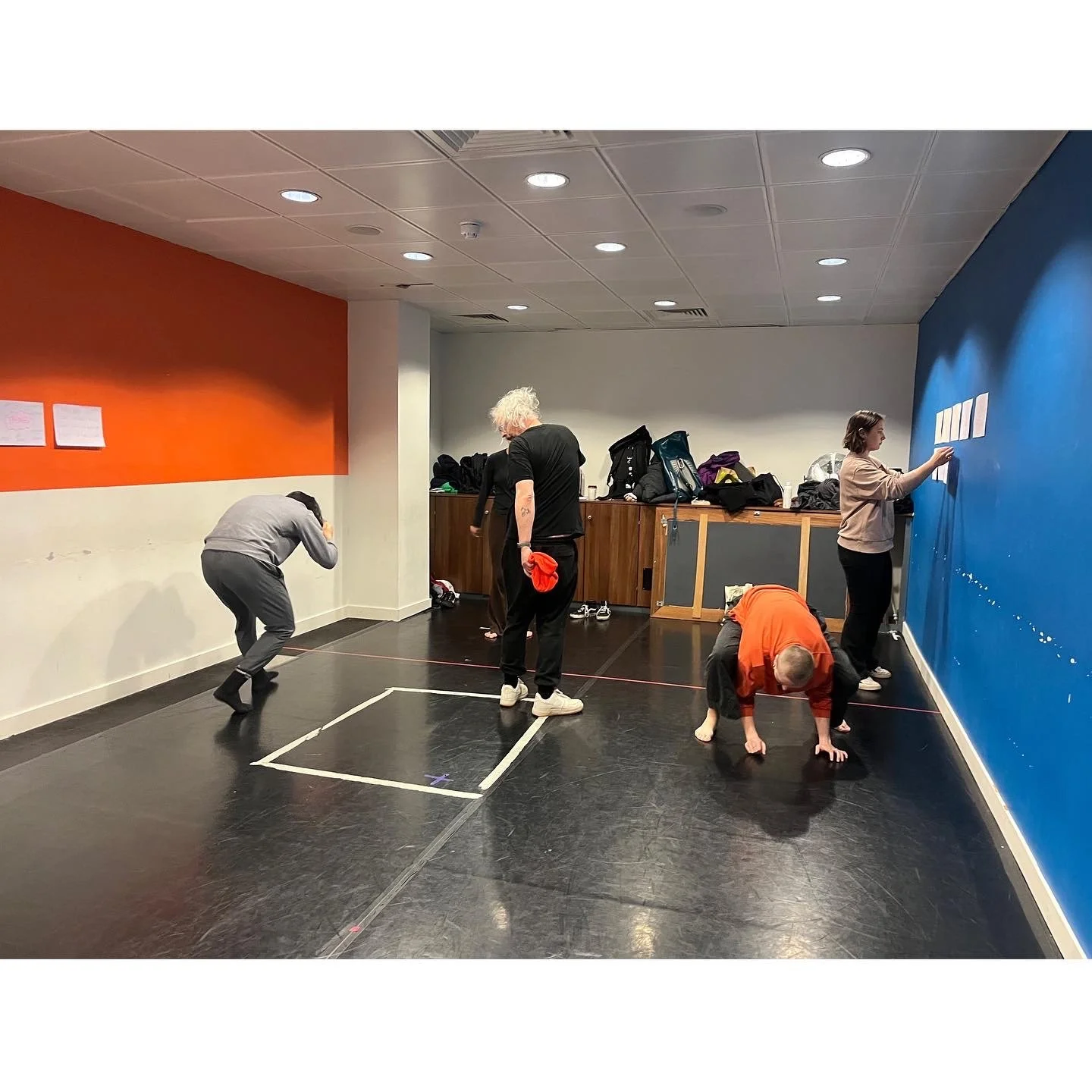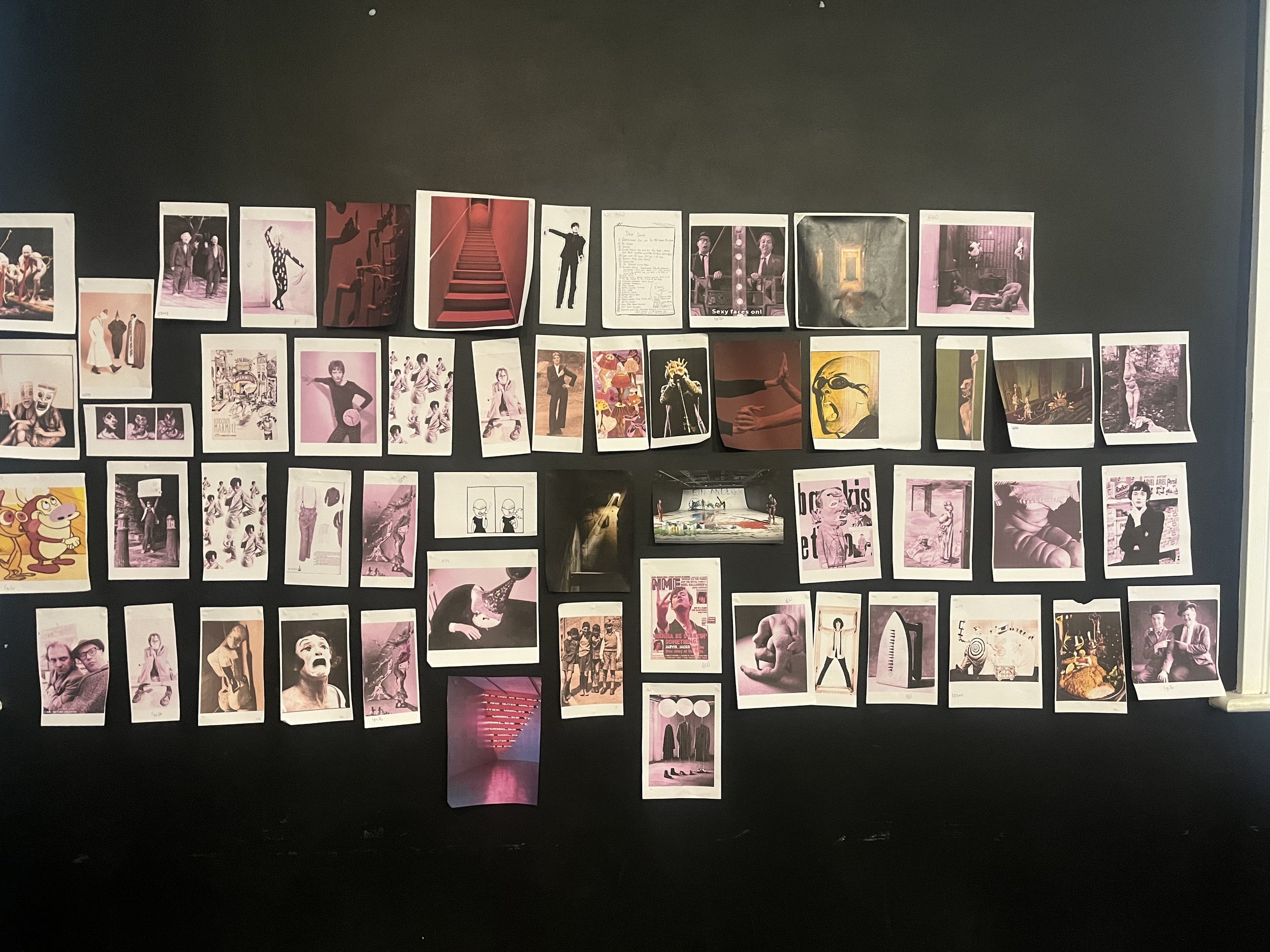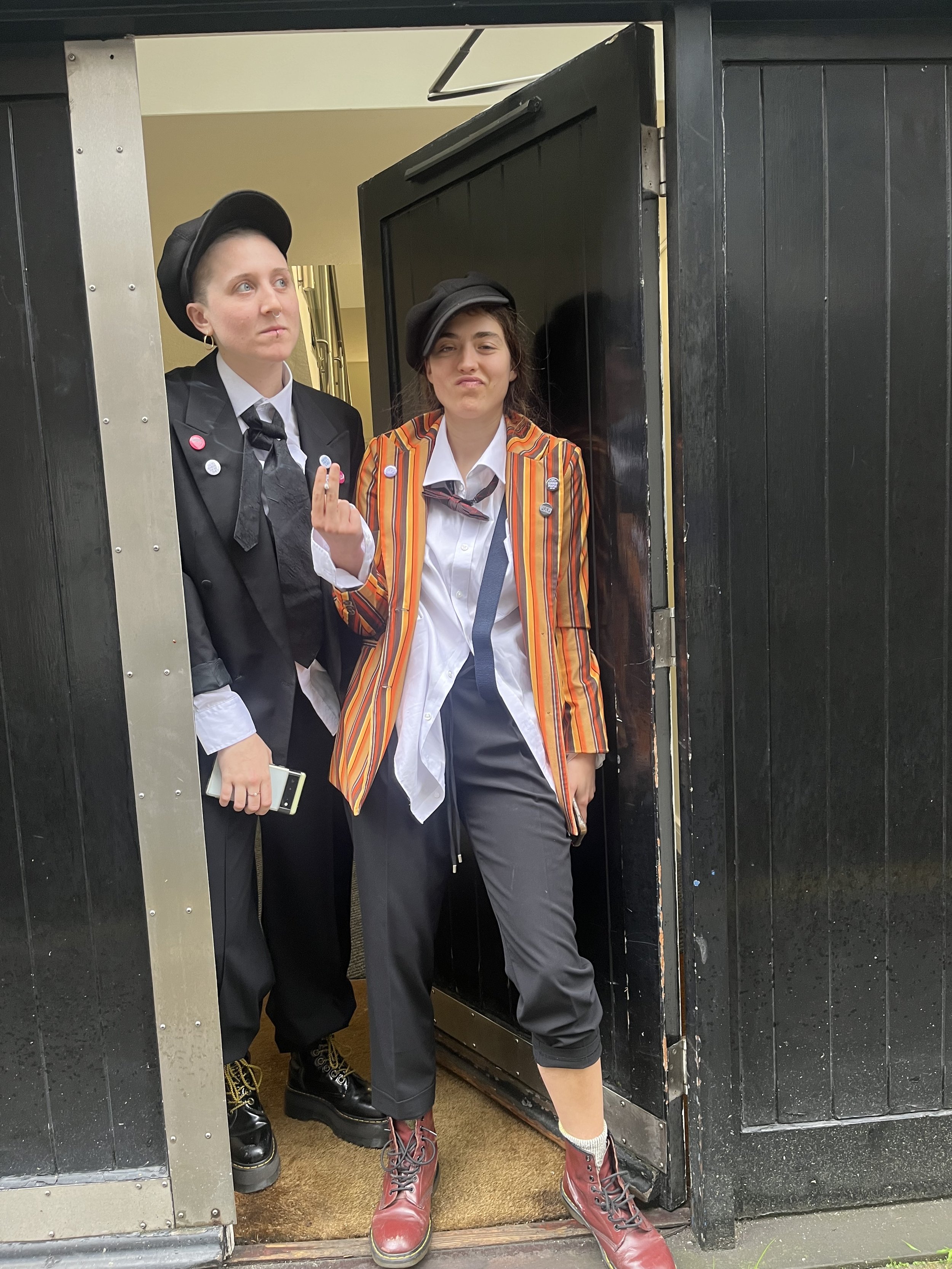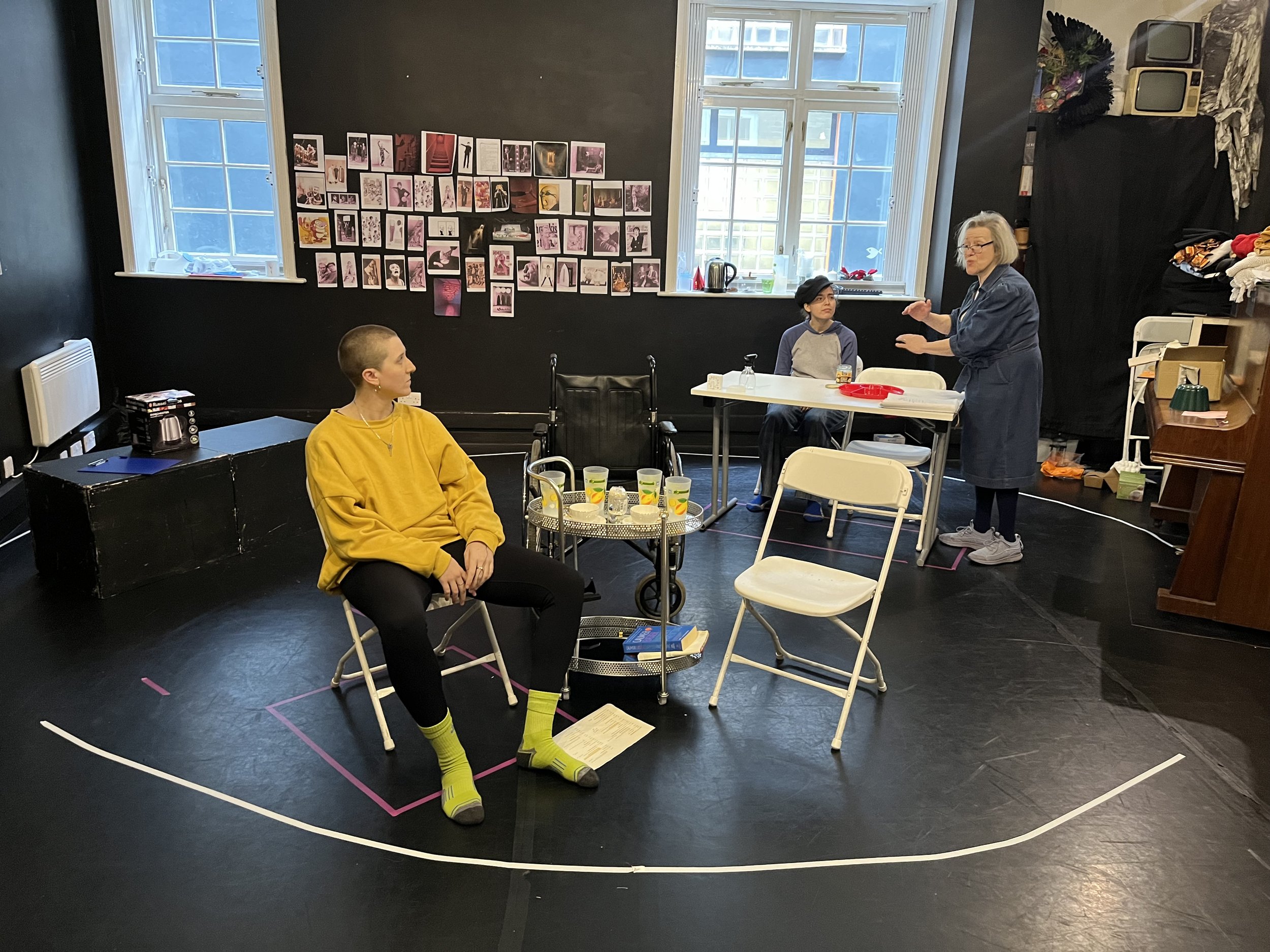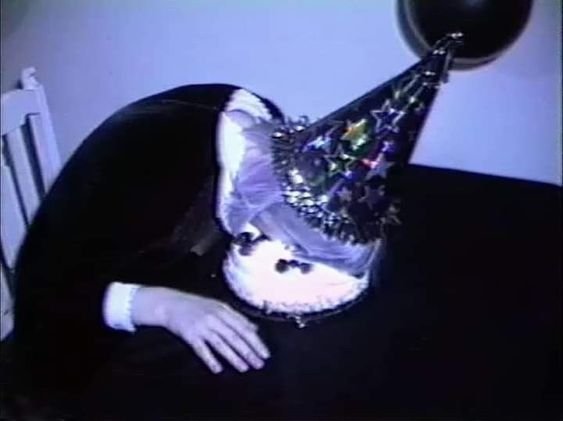
WHAT WOULD JARVIS DO?
Omnibus Theatre, 2024
Written by Laura Grillo
Directed by Maddy Corner
Produced by Hannah Petch
Cast: Bobi Wilkinson, Isabel Butt, Erika Poole, Henry Miller, Jules Chan
Stage Manager: Rhea Cosford
"We just sit and sometimes dance and prance around the room and ask what would he do? What would Jarvis do? And that somehow makes us feel a little better."
Didi and GG are best friends and superfans of pop group Pulp and front man Jarvis Cocker.
When a pair of yellow trousers worn by the man himself come up for sale via their unhinged therapist, they snap them up at auction. But how can they tell if the trousers are authentic? And what if they were never actually owned or worn by Jarvis Cocker?
In a bid to locate the real yellow trousers, they find themselves running in circles and encountering bizarre characters in a world where things are not always as they seem.
What would Jarvis do? is an experimental absurd black comedy exploring what happens when we lose objects and people that are important to us, and how we can move forward….









Directors Statement
What Would Jarvis Do is a fantastical treat of a play. Humour and clowning allow us to explore heavy themes such as grief, caregivers and dementia through a lens of absurdity. This creates a dynamic that is simultaneously compelling yet unnerving. Capturing this knife-edge is very important to me, we laugh at moments full of physical comedy, which twist into something more sinister. Some moments need to feel deeply uncomfortable, such as the force-feeding of juice to Mister, and the tragic impact of Ms Lacy’s death on her robot son Christopher. Laura Grillo subconsciously taps into painful aspects of life, parts that we like to pretend don't exist. The play taps into the subjective and multilayered nature of truth. But in true absurdist style, we don't linger, and the cyclical nature of the play throws us back to the start, as we watch it all unfold again and again, with completely different results. The absurdity of life and death, and the relentless passing of time, are demonstrated keenly in this play.
The characters are reminiscent of a Beckett play; they explore the world and their relationships using movement, singing, clowning and endless props. The result is at once bizarre, intriguing and touching. Audiences are immediately won over by the clown double act at the centre of our story, Didi and GG. Didi is the brains and GG is the innocent. It emerges that Didi has dissociated from their grief, replacing their need for closure on the traumatic event of losing a parent, with their want to get Jarvis Cocker's yellow trousers. GG is the more persuadable of the two and frequently finds herself in situations of bizarrity without knowing quite how she got there. Elements of the production, from costume design to casting, amplify the difference between the two, GG is scruffier with long hair and a short attention span, whilst Didi cares about their presentation, with a sharp shaved head and a keen sense of purpose.
The setting needs to be timeless and placeless, whilst completely specific to the characters. Rather than rooting the location in a real place, we experience Ms Lacy and Mister's house as a bubble, which the outside world doesn't seem to reach. The script is detailed and full of references to props and set items that all hold meaning. For example, the jelly at Christopher's birthday evokes memories of the '70s, of tasteless cooking and undervalued housewives. We then jump to an era of technology, with tiny mechanical laptops punctuating a therapy scene with its extremely loud keyboard. The suspended gun hangs over the heads of the characters darkly foreboding a violent resolution. The stage will be full, with a true maximalist design, which becomes an Easter egg hunt for audience members, unsure of which way the play will turn next. I’ve chosen not to have any doors or walls, instead demarcating the house through simple outlines on the floor. The characters interact with the set in comedic ways, for example, the doorbell lives forever in Didi's pocket, bringing a Chaplin-esque prop comedy aspect to the production.
Pulp songs dominate the soundtrack, littering the play with Jarvis Cocker's unique voice and music. Pulp's music is emblematic of standing against the system with strong links to working-class culture and Sheffield. We've captured this in our casting, the majority of the cast is from the North / Midlands. Each cycle is punctuated by a blast of brit-pop, treating the pulp fans in the audience and weaving Jarvis' attitude and tempos through the production.
The cast contains three actors in their 20's, and two in their 60's, ages that can be underrepresented on stage. At the centre of our story, we have 3 women; unusual for plays within the absurdist genre. Ms Lacy's complexity drew me to this play, she is hilarious, matriarchal and deeply flawed, we explore her character in full multidimensionality.
For me, the beauty of this play is that every audience member will chime with different moments and have a unique interpretation of the events. The conversations in the bar afterwards are brilliant.
